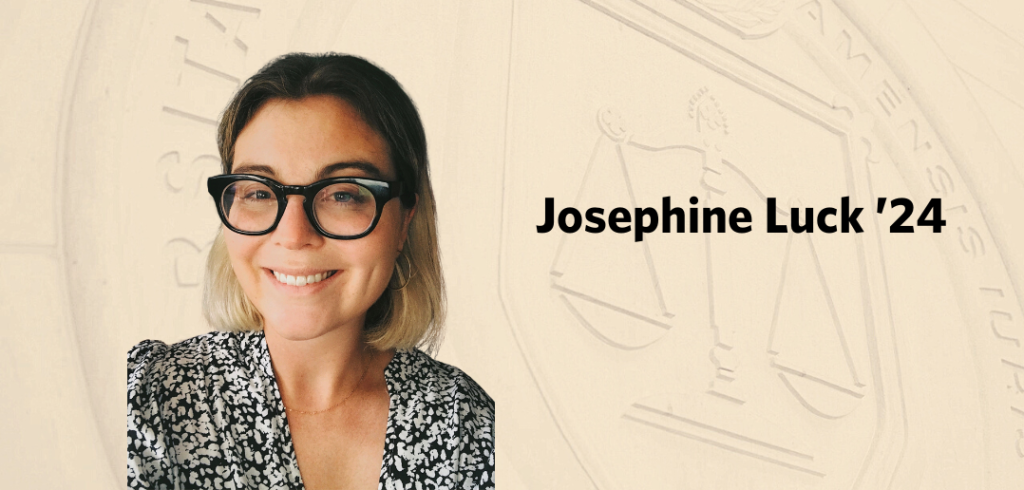Josephine Luck ’24, staff member of the Fordham Intellectual Property, Media & Entertainment Law Journal, was named the winner of this year’s Phil Cowan–Judith Bresler Memorial Scholarship Writing Competition. Sponsored by the New York State Bar Association’s Entertainment, Arts, and Sports Law Section and open to students in New York-area law schools, the competition is one of the most revered art law writing competitions.
Luck’s submission, titled “Is There Room for Descendants of Enslaved Peoples in the Domestic Legal Framework for Restitution and Repatriation of Cultural and Familial Property?,” was adapted from a paper she wrote for Adjunct Professor Leila Amineddoleh’s Art and Cultural Heritage Law Seminar this past fall.
The paper primarily focuses on Lanier v. Presidents & Fellows of Harvard College (2021) in which a fifth-generation descendant of two enslaved people filed a suit claiming ownership and seeking restitution of daguerreotypes that were owned by the college and depicted her descendants in 1850. The United States currently recognizes ownership claims brought by individuals, foreign nations, and certain Native American tribal groups pursuing the restitution or repatriation of works of art or cultural property that have been unlawfully removed from their ownership. However, the U.S. has never recognized that the descendants of enslaved peoples, either individually or as a distinct cultural group, possess a similar kind of ownership interest in these kinds of objects.
As Luck phrases it in her article: “Though the Massachusetts Appeals Court dismissed Lanier’s ownership claims, Lanier’s case raises an important question: Can the descendants of enslaved peoples in the United States seek the return of objects and personal property with familial or cultural significance within the confines of existent United States law?”
Wanting to explore this issue more deeply, Luck specifically examined claims dealing with individual ownership, national ownership, and communal ownership and analyzed where descendants of enslaved people could best fit into the current U.S. framework. “Based on my analysis of where the law is right now and what the legal system determines to be concrete evidence of ownership, it is very hard for groups that have been consistently disenfranchised by the state and the legal system out of their property to prove such ownership,” she explained.
Luck added: “I think people often forget that there are social justice issues within a field like art, which is so important to remember.”
Luck’s winning submission will be included in the spring 2023 Entertainment, Arts and Sports Law Journal, which will be available digitally in April as well as in print in May. The journal is published by the Entertainment, Arts and Sports Law Section of the New York State Bar Association.

